Coconut Sugar
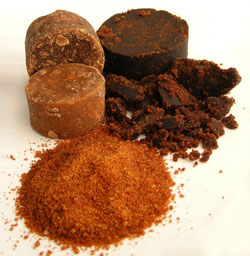 Coconut sugar, also called coconut palm sugar, is made from the sap of the coconut palm. Similar to the way maple syrup is made, coconut sugar starts by making slits in the bud of a coconut tree. The sap is collected, boiled, and poured into bamboo tubes until it is solid. Coconut sugar is a golden brown sugar, and you can buy it in liquid, granule or block form. It’s color varies from light to dark, and no two batches are the same. Several colors of coconut sugar can emerge from the same batch. It’s texture can be hard or squishy soft. The taste of coconut sugar is similar to that of brown sugar, but with more of a butterscotch or caramel taste. It is great for baking because of its high burn temperature and low melt temperature. When purchasing coconut sugar take note that most sugars sold as coconut sugar are not pure coconut sugar, but are mixed with cane sugar or other additives.
Coconut sugar, also called coconut palm sugar, is made from the sap of the coconut palm. Similar to the way maple syrup is made, coconut sugar starts by making slits in the bud of a coconut tree. The sap is collected, boiled, and poured into bamboo tubes until it is solid. Coconut sugar is a golden brown sugar, and you can buy it in liquid, granule or block form. It’s color varies from light to dark, and no two batches are the same. Several colors of coconut sugar can emerge from the same batch. It’s texture can be hard or squishy soft. The taste of coconut sugar is similar to that of brown sugar, but with more of a butterscotch or caramel taste. It is great for baking because of its high burn temperature and low melt temperature. When purchasing coconut sugar take note that most sugars sold as coconut sugar are not pure coconut sugar, but are mixed with cane sugar or other additives.
Coconut sugar can be used anywhere you would use regular cane sugar. It is quickly becoming one of the best natural sweeteners, and is even called the “wonder” sugar. Add it when baking cookies, or sprinkle some in an energy drink. Indians use the coconut palm sugar, or Palmyra sugar, to make coffee, and even desserts. They also have a variety they call panam kalkandu. This is used to remove phlegm from your lungs, or to treat a sore throat. The health benefits from coconut sugar can be astounding. It is a low glycemic index sugar, as compared to cane sugar, maple syrup, or even honey. Coconut sugar also contains 16 amino acids, 12 vitamins, and 13 minerals that your body needs to be healthy.
Coconut Sugar: The Healthy Sweetener
Coconut sugar is manufactured from the flowers, or sugar blossoms, of the coconut palm tree. The nectar is harvested by slicing the flower. The nectar is then boiled to a thick, caramel-like substance and allowed to dry. It is then ground to a crystalline powder. Coconut sugar has been used for ages in foods and natural herbal medicines.
Coconut Palms on average produce up to 75 percent more sugar per acre than sugar cane using less than a fifth of the nutrients. It is much more cost-effective and typically grown by small farms in developing nations. This money stays in the local community and raises the quality of life in the local population.
Coconut sugar is also extremely low on the Glycemic Index. It is rated as a GI 35. By comparison, cane sugars are rated at GI 68. It is completely organic and contains no additives or preservatives. Coconut sugar is rich in iron, potassium, and magnesium as well as essential vitamins such as vitamin B and C.
[ad] Empty ad slot (#1)!
Perhaps the most appealing quality of coconut sugar is the fact that it helps regulate and manage diabetes, as it helps lower total and LDL (low-density lipoprotein) cholesterol levels. This also makes coconut sugar ideal for weight loss and preventing obesity.
Sugar substitutes such as saccharin, sucralose, and asparatame are dangerous sweetening alternatives. Sucralose, for instance, is a chlorocarbon. Chlorocarbons are a class of substances including some very dangerous pesticides. They can cause serious organ and genetic problems. Because coconut sugar is a completely safe alternative to these dangerous chemicals, it is by far the best sugar substitute on the market today.

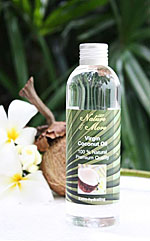 Coconut Oil
Coconut Oil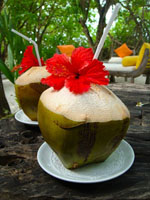 Coconut Juice
Coconut Juice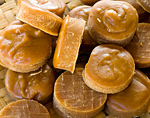 Coconut Sugar
Coconut Sugar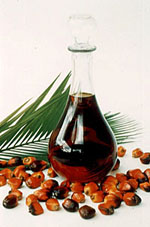 Palm Kernel Oil
Palm Kernel Oil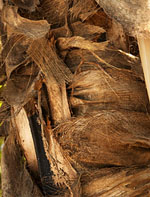 Copra
Copra